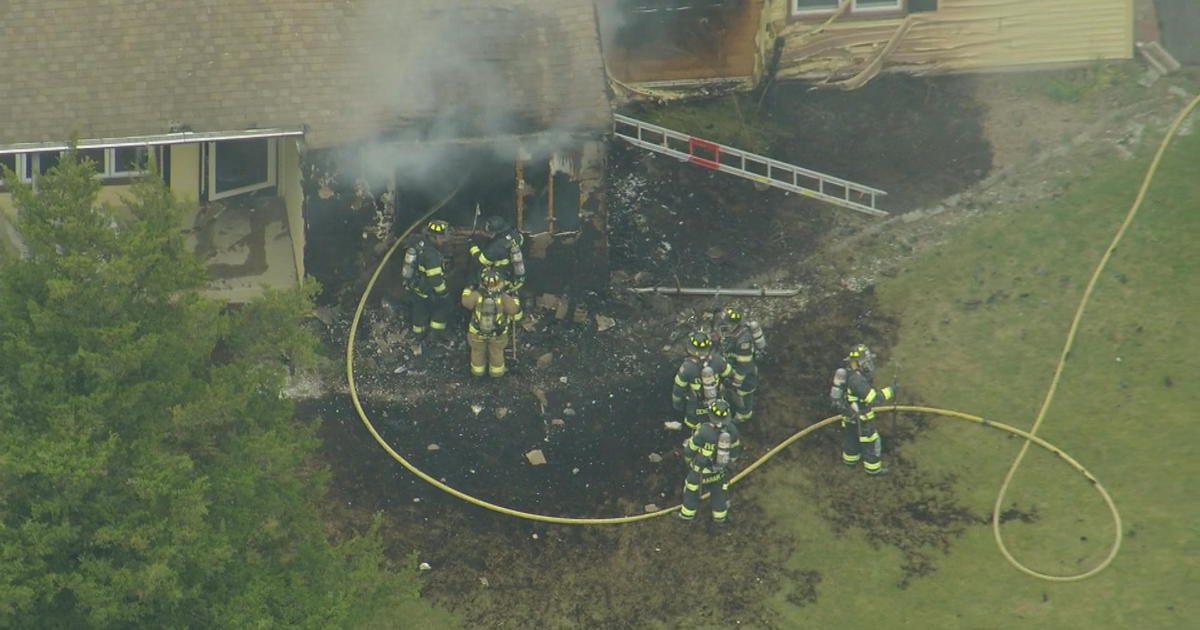Angie's List: Keeping Your Home Dry
By Jim Donovan
PHILADELPHIA (CBS) -- April showers bring may flowers but that's no all they bring. Sometimes you could end up with unwanted water in your home.
In this week's Angie's List report, Jim Donovan shows you some things you should be doing to make sure you home stays dry.
Time is of the essence when you have water coming into your house, so make sure you regularly keep an eye out for it.
"Because if it's left undetected, it can lead to mold, which can lead to health problems. So any signs of water should be addressed right away," said Angie's List founder Angie Hicks.
There are some simple things you can do to avoid water problems.
"Check your roof periodically for leaks. Also, clean your gutters. Check the grade around the foundation of your house to be sure it's grading away from your house. All of these things will prevent potential problems," said Hicks.
And don't forget to check your sump pump.
"Clean out your pit because you don't want that stuff getting going into your pump and hurting your propeller and motor and stuff, so that's the biggest thing you can do. The second thing is just making sure it works. Don't wait until the last minute to find out your sump pump isn't working. Check the switch, unplug it, plug it in, dump some water down there," said plumber Brad Isley.
And it's really important to have battery back up for your sump pump too.
"So if you have a basement, whether its finished or unfinished, and you have something in there you want to protect, then you need a backup sump pump of some version," said Isley.
More info from Angie:
Gutters & downspouts:
• The goal of your gutters is to collect rainwater and help direct it away from your house. If they are damaged or clogged, water could overflow during heavy rains and create problems at the foundation. Check your gutters and downspouts a few minutes following a heavy rain. If you see any water overflowing, you have a problem.
• Have your gutters cleaned and inspected twice a year to minimize your risk for water damage. Clogged gutters and downspouts can cause major water damage and quickly.
• Have your gutter system installed correctly with correct number of downspouts of the correct size and extended at • least 10 feet from the house and away from your foundation.
• A gutter or roofing professional can inspect your roof for signs of potential leakage issues like damaged shingles, popped nails or cracked rubber seals.
Sump Pumps:
• A sump pump protects a home's crawlspace or basement from water filtration from the outside. An automatic pump, normally operated by a float mechanism, detects water and pumps it outside, away from the house, if the water reaches a certain level.
• Sump pumps usually run on electricity. Installing a battery or water-powered backup sump pump can help protect your home flood damage, should you experience a power outage from a storm.
• Keep the pit free of debris. Test the pump's operation on a monthly basis by manually pulling the float up to engage the motor. Another way to test is to fill the sump pit with water and go outside to make sure the pump is actually discharging water. You can eliminate any build-up in the system by periodically pouring white vinegar through the unit.
• Check your homeowner's insurance coverage to ensure it includes a sump pump failure clause.
Landscape & Foundation:
• The landscape around your home can have a major impact on whether or not water will cause damage. Design your landscaping grade so water slopes away from the home's exterior, rather than towards it.
• Take a walk around your home and look for cracks and holes in your foundation/walls and seal them if necessary.



